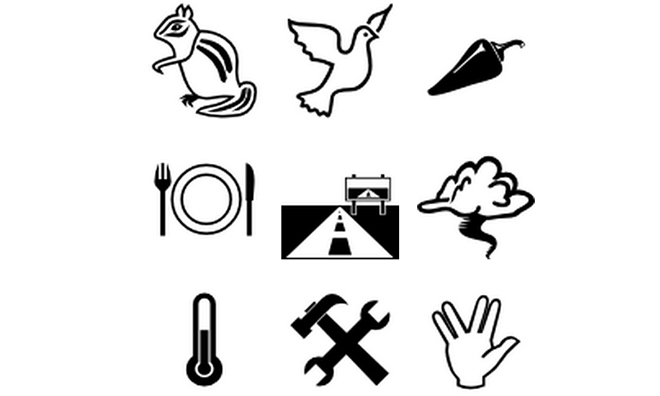'No Piracy' Emoji Leaves Torrent Downloaders Wondering If Unicode, Apple Developers Meant To Intimidate Online Pirates

Smartphone users who download the new emoji characters included in the latest Unicode update will notice they can now send friends an image of a chipmunk, a tornado, or, oddly enough, an anti-piracy logo. The symbol is just one of approximately 250 in the set, but it quickly attracted attention from piracy advocates already nervous about the influence that major technology companies have on the way people consume information today.
The Unicode Consortium is the organization charged with coming up with the industry standard for how text is expressed on computing devices. Because the group must develop text code and symbols for a variety of devices and uses, Unicode relies on a variety of updates from Apple, Google, Microsoft and other smartphone developers.
Those developers, and by extension Unicode, have been criticized in recent years for creating an overwhelmingly white set of faces on the emoji list. Multiple studies of Silicon Valley itself have shown that the employees who make up the booming tech companies are overwhelmingly white and male, creating the notion that many entrepreneurs are developing products that reflect only their own background. Whether that perception is true is impossible to determine, but the creation of an emoji with a pirate behind the universal NO sign has, in some circles, reinforced the notion that Apple does only what’s best for Apple.
The image in question, labeled #1F5572, is a simple picture of a man wearing an eye patch.
“While its presence could be construed in any number of ways, it’s called ‘No Piracy,’ so it’s fairly clear what the consortium had in mind for it,” wrote the pro-piracy website TorrentFreak. “Perhaps hoping to provide a little balance, another new character (#1F571) depicts the familiar skull and crossbones. It is labeled ‘skull and crossbones’ too – no ‘Yes to Piracy’ here.”
Unlike an image of a barometer, or Mr. Spock’s “Live long and prosper” salute, it’s difficult to imagine when an emoji user would need to use the “No Piracy” symbol in everyday conversation. Piracy online is still a serious concern for much of the entertainment world, but illegal copyright infringement levels have gone down since Netflix, Spotify and other on-demand services have made entertainment so much easier to access.
“That just seems a bit random to me. Maybe everyone is drawing the line somewhere else, but I’m guessing most people don’t want to go down the road of adding company logos for Coca-Cola and McDonald's or pictures of the American presidents or the sigils from ‘Game of Thrones.’ It’s good that Unicode is extendable and all, but that doesn’t mean we should be adding glyphs just for the sake of it,” wrote one commenter on Hacker News after the list was released.
“Also, adding political glyphs is a sure way to ruin the universality of Unicode (I’m looking at you, no-piracy),” he went on. “All that said, I love Unicode. It has flaws, but I think it’s brilliant.”
© Copyright IBTimes 2024. All rights reserved.





















